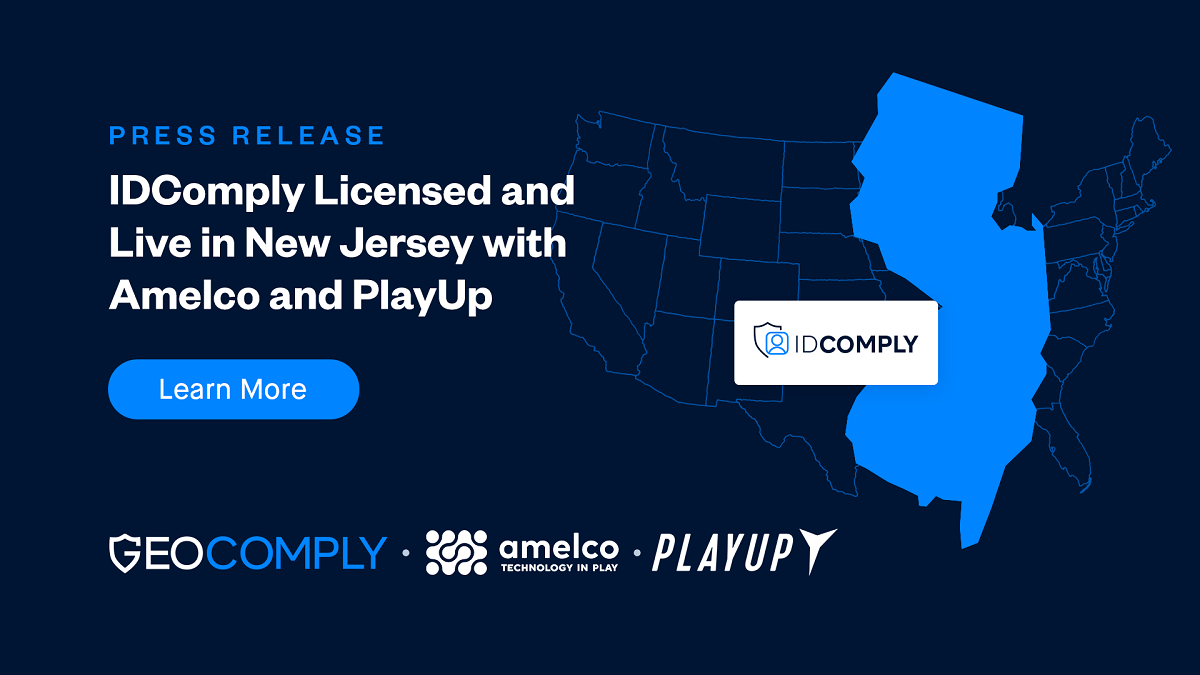Compliance Updates
Mintas’ PlayUp restraining order revoked in US court

Nevada’s District Court has denied PlayUp’s emergency motion for a preliminary injunction against its former US CEO, Dr Laila Mintas.
At a hearing last week, Judge Gloria Navarro ruled that PlayUp had failed to demonstrate that it was Mintas’ actions that led to the collapse of the operator’s acquisition by crytpocurrency exchange FTX.
Instead, she said that evidence provided in Mintas’ defence successfully demonstrated it was “just as likely or more likely” that the deal collapsed as a result of group CEO Daniel Simic’s actions.
Mintas’ memorandum submitted to the court between Christmas and New Year revealed that once the $450m acquisition price was agreed, Simic attempted to insert a number of additional costs into the agreement.
He looked to have FTX acquire PlayChip, a decentralised utility token designed for the betting and gaming sector controlled by PlayUp’s Australian management, for an additional $105m. Simic also attempted to secure $65m for “key staff”, including $25m for himself.
PlayUp’s argument centred on the fact that after Mintas had been asked not to attend a meeting with FTX in the Bahamas, she met with the business separately. After that meeting, FTX emailed the operator’s management to say it would not be pursuing the acquisition.
As FTX cited a lack of communication between the US and global businesses, PlayUp claimed that was evidence that Mintas’ meeting had led to the deal’s collapse. However the email also flagged potential conflicts of interest caused by the condition that PlayChip be acquired as well.
The judge noted this email was not provided to the court by PlayUp, despite it being relevant and placing things in a “much different light”. “[It’s] just more likely that this point, in my mind, that Dr Mintas was exercising her executive responsibility and that she was turned into the scapegoat.”
In her ruling, Judge Navarro noted that when she initially granted the temporary restraining order in December, an affidavit from Simic implied circumstantial evidence of Mintas threatening to “burn PlayUp to the ground”. Having reviewed Mintas’ evidence, the judge said she was less sure “whether the statement was even made”.
Ultimately, Navarro said that Mintas had provided substantial evidence that her comments did not cause the sale to fail, and PlayUp failed to provide evidence that she even made a disparaging comment to FTX.
In response to the injunction being denied, Mintas has filed claims for damages in excess of $75,000. She accuses PlayUp of abuse of process, after it deliberately omitted key information from its filing for a temporary restraining order.
She also claims relief for defamation, arguing the operator caused her to suffer “irreparable harm to her reputation, loss of income, devaluation of her shares, among other damages”. PlayUp also portrayed her in a false light by making these claims, and intentionally inflicted emotional distress on her.
The operator’s repeated reassurances that she was to be awarded a new contract, which was highlighted as causing the breakdown in the relationship between Mintas and PlayUp, makes the business guilty of “guilty of oppression, fraud and malice”, she argues. The fact it claimed to be finalising her contract while having no intention of doing so amounts to fraud, as she did not seek alternative employment during this period.
Finally, due to a separate temporary restraining order being secured in PlayUp’s home market of Australia, Mintas is seeking a declaratory judgement that the Australian injunction has no force or effect.
Based on the evidence provided in the US District Court, she argues that it is no more than an attempt to “gag” her, and ultimately as she is not a citizen of the country, should be made inadmissible.
While Mintas remains unable to comment due to this ongoing litigation, her legal representation stressed that she “strongly denies [PlayUp’s] allegations and will fight vigorously against the remaining claims and prosecute her counterclaims”.
Compliance Updates
HIPTHER Launches Responsible Gambling Assessment Tool Across Its Global Gaming Media Network

HIPTHER, a leading media and events brand in the Gaming and Tech industries, has launched a new Responsible Gambling Assessment Tool, now live across all of its gaming media platforms. This quick, anonymous self-test is designed to help players better understand their relationship with gambling, encouraging safer play through awareness and early self-checks.
The “Play Responsibly” tool is backed by clinical research and built with user privacy at its core, based on the globally recognized Problem Gambling Severity Index (PGSI) – a 9-question framework used to assess gambling risk levels, from low to moderate or high.
No sign-up needed. No Cost. No data collected. No Judgement. Just honest insight.
Whether you’re simply curious or looking to take a proactive step toward support, this free tool delivers instant results and practical next steps – all in under two minutes.
Key Features:
- Completely anonymous – no registration or personal data required
- Instant results with tailored guidance
- Available in 5 languages
- Mobile-first and accessible across all devices
- Fully GDPR compliant
Designed to meet WCAG 2.1 AA accessibility standards, the tool ensures a smooth and inclusive user experience for everyone. With multilingual support and local resource integration, it helps diverse populations connect with trusted support networks in their region.
“While our media platforms primarily serve the B2B side of the industry, we know they’re also visited by players looking for insights and updates. That’s why it’s important for us to go beyond headlines and contribute real tools that support safer play. This assessment is one small, meaningful step toward that.” – Zoltán Tűndik, Co-Founder and Head of Business at HIPTHER.
Take the assessment today and share it with your community.
Because gambling should always be safe, informed, and fun.
Try it now on any of HIPTHER’s gaming media platforms:
By launching this tool, HIPTHER reaffirms its ongoing commitment to promoting transparency, responsibility, and player well-being in the global gaming industry. Together with our partners and audiences, we continue working toward a safer, more informed future for players everywhere.
Compliance Updates
Aristocrat Gaming Wins Land-based License to Develop MONOPOLY Slot Games

Aristocrat Gaming and Hasbro announced that Aristocrat Gaming is the winner of a competitive RFP to create MONOPOLY slot games for worldwide land-based gaming venues, securing a multi-year agreement. The landmark partnership will see Aristocrat Gaming launch all-new MONOPOLY-themed slot titles, beginning in early 2026. The company is excited to reintroduce one of the world’s most iconic brands to land-based slot games.
“To be selected as Hasbro’s land-based slots partner – after a highly competitive process – is a proud milestone for Aristocrat Gaming. Our commitment to innovation and bold creativity sets us apart, and we’re excited to reimagine MONOPOLY slot games for today’s players around the globe,” said Craig Toner, CEO of Aristocrat Gaming.
“It was evident through our selection process that Aristocrat Gaming was the natural fit for the next evolution of the Monopoly brand in the gaming category. We can’t wait for Monopoly fans to experience all new premium gaming content on casino floors,” said Claire Hunter Gregson – Director, Gaming Relationships of Hasbro.
Compliance Updates
Statement from NYSGC Chair O’Dwyer Regarding Casino Applicants

NYSGC Chair O’Dwyer has released the following statement regarding casino applicants.
“On behalf of my fellow Commissioners and the Gaming Facility Location Board, I welcome the eight applicants to Develop and Operate a Gaming Facility in New York State to the competition. The Commission and Board are committed to ensuring the casino siting process is fair, transparent, competitive, deliberative, and beneficial for the State of New York.
“This is a tabula rasa – there are no frontrunners or favorites. These eight proposed projects represent billions of dollars in private investment, thousands of jobs, and amenities in addition to a world-class casino – all things that can transform a community. That’s why each project must obtain all local entitlements, including zoning approval, and be approved by a specific Community Advisory Committee of appointees of the elected officials representing the proposed facility’s location. Only those projects that meet both statutory requirements – zoning and Community Advisory Committee approval – by September 30, 2025 will be considered by the Gaming Facility Location Board. This ensures that only those projects embraced by the community are placed before the Board for consideration.
“Appointing authorities for all eight projects have been notified of their obligation to make appointments to the Community Advisory Committees as soon as possible, as Committees are expected to be up and running in the coming weeks. Through the summer, Committees will hold public hearings to gauge support and/or opposition to their respective project, and formally vote whether to advance the project for Board evaluation. Those projects that are not approved by their Community Advisory Committee will not advance.
“The Board will evaluate those projects approved by their Community Advisory Committee and select up to three projects by December 1, followed by Commission licensure. This ensures that New York State will collect the already-booked casino license fee(s) ahead of schedule.
“As the Board has stated in the Request for Applications, the revenue from new gaming facilities is expected to benefit New York’s public schools, mass transit, local governments, and problem gambling treatment services. The jobs created by these casinos are expected to deliver livable wages to help families live, stay, and prosper in New York.
“We look forward to a competitive process with active community engagement for all proposals.”
-
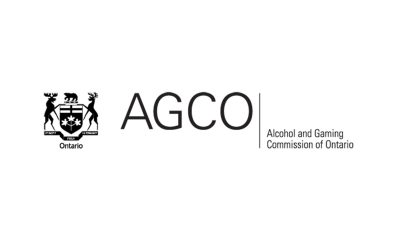
 Canada5 days ago
Canada5 days agoAGCO Fines Great Canadian Casino Resort Toronto $350,000 for Serious Regulatory Violations Linked to Impromptu After-Party on Gaming Floor
-
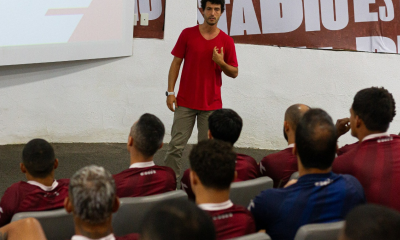
 Compliance Updates5 days ago
Compliance Updates5 days agoEsportes da Sorte holds forum on “Integrity in Sports” with Ceará and Náutico
-
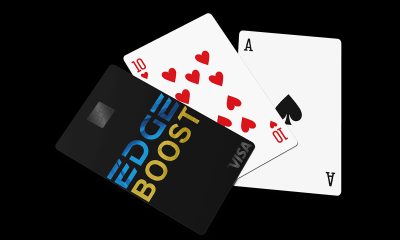
 Latest News5 days ago
Latest News5 days agoEDGE Boost Named Preferred Payment Method for World Series of Poker Event Series
-
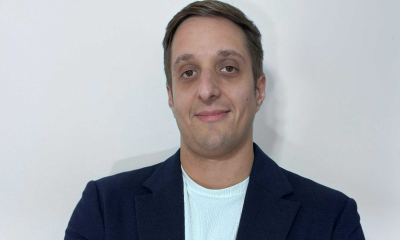
 Latest News5 days ago
Latest News5 days agoBlokotech unveils Cristian Tonanti as new Casino Partnership Manager
-

 Latest News5 days ago
Latest News5 days agoFIRST and Genius Sports Extend Landmark Data Partnership, Powering Continued Growth
-

 Canada5 days ago
Canada5 days agoIGT and Atlantic Lottery Sign Eight-Year Video Lottery Central System Technology Agreement
-

 Latest News4 days ago
Latest News4 days agoNASCAR & iRacing Renew Partnership with PlayVS
-

 Latest News3 days ago
Latest News3 days agoRivalry Reports Full-Year 2024 Results as Strategic Turnaround Takes Hold, Operating Loss Narrows, and Efficiency Improves








